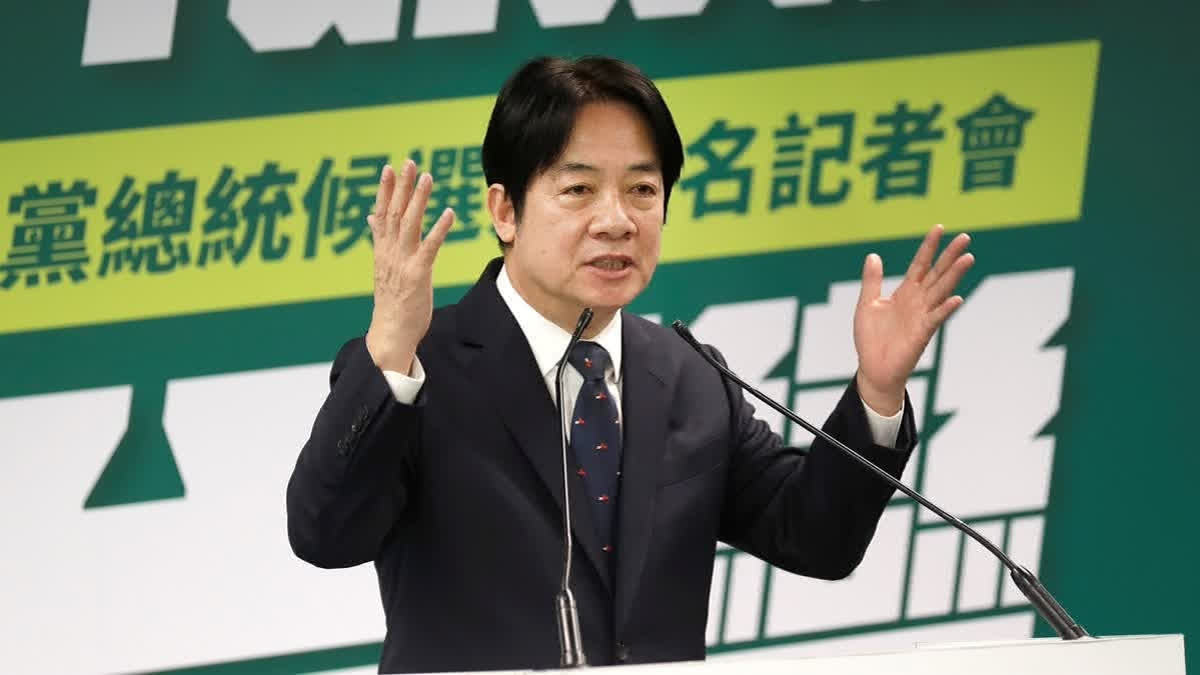New Delhi: With Lai Ching-te, the candidate of the ruling Democratic Progressive Party (DPP), winning the presidential election in Taiwan held on Saturday, India will have more than one reason to smile. Though India and Taiwan do not share official diplomatic relations due to Beijing’s One China Policy, ties between New Delhi and Taipei have been on the upswing in recent times. Despite not sharing official diplomatic ties, both India and Taiwan have set up representative offices in each other’s countries.
At an event in London last year, External Affairs Minister S Jaishankar said that there has been an upswing in the levels of cooperation between the two nations. “We have substantial technology and economic and commercial relations with Taiwan and certainly Taiwan has a reputation when it comes to electronics and of course, more recently with semiconductors. So, there has been an upswing in the levels of cooperation,” Jaishankar said.
India is a major focus area of Taiwan’s new foreign policy, dubbed the New Southbound Policy, adopted in 2016. According to this policy of outgoing Taiwanese President Tsai Ing-wen, the East Asian island nation is striving to broaden exchanges and cooperation with India and five South Asian nations, the 10 member-states of the Association of Southeast Asian Nations (ASEAN), and Australia and New Zealand in areas such as commerce, culture and technology.
This will mean less dependence on mainland China for Taiwan’s economic development. Taiwan is the world’s 22nd largest economy and was dubbed one of the four Asian tigers in the late 20th century, the others being Hong Kong, Singapore and South Korea. Given its border disputes with China in recent years, India has restricted Chinese investments and digital apps. At the same time, New Delhi has raised its level of engagement with Taiwan, especially during Tsai’s presidency from 2016 to 2024. In return, Taiwan has offered its moral support to India in its disputes with China.
Taiwanese media outlets, especially those affiliated with the DPP, have openly come out in support of India during its disputes with China. In June 2017, the official Facebook account of Liberty Times posted in Chinese, “Still the same words: Go India!” in support of India during its 2017 border standoff with China in the Doklam area of Bhutan. In June 2020, after the border clash between Chinese and Indian forces at Galwan in eastern Ladakh, Taiwan News posted a widely shared image of the Indian deity Lord Ram slaying a Chinese dragon on its website as its “Photo of the Day”.
Both India and Taiwan share a vision of a free, open and inclusive Indo-Pacific in the face of China’s belligerence in the region that stretches from the east coast of Japan to the east coast of Africa. This shared vision opens opportunities for cooperation on maritime security, counter-terrorism and disaster management. India is part of the Quad that also includes the US, Japan and Australia, which is working for a free and open Indo-Pacific. This comes amid the deterioration in ties between the US and China.
Meanwhile, economic and commercial ties between India and Taiwan have been rising steadily. Trade volume between India and Taiwan reached $8.5 billion in 2022. India is the 17th largest trade partner of Taiwan. However, according to Jules Shih, Director of the Taiwan World Trade Centre in Chennai, trade volume between the two countries will increase approximately by 50 per cent in the next three years and reach $13 billion.
